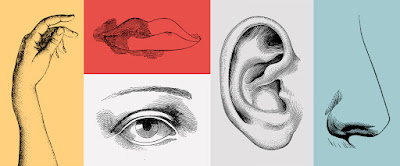Definitions of Magic

Credit: Health Matters, Stories of Science, Care & Wellness (NewYork-Presbyterian)
David Abram’s Spell of the Sensuous reading made me think of how magic is portrayed in the media, like in movies, books, and TV shows, and how that is often different from the ideas and beliefs Abram talks about. One way he defines magic is:
“Magic, then, in its perhaps most primordial sense, is the experience of existing in a world made up of multiple intelligences, the intuition that every form one perceives…is an experiencing form, an entity with its own predilections and sensations, albeit sensations that are very different from our own” (16).
I think that this definition differs from popular definitions of magic because it allows for the possibility of anyone experiencing magic and assumes that magic is natural and existing, rather than super-natural or brought on by special, impossible powers that only some people have. The concept of “multiple intelligences” and intuitions fits very well with what we have been discussing for the whole semester; that the senses, although distinct in some ways, are connected and intertwined and provide a greater understanding together than separately.
Another quote from Abram that stood out to me was when he talked about magic and community. He writes, “For the magician’s intelligence is not encompassed within the society; its place is at the edge of the community, mediating between the human community and the larger community of beings upon which the village depends for its nourishment and sustenance” (14). This idea of a magician mediating between communities reminded me of something that Jeffrey Kripal would say. I remember him writing frequently about the importance of a surrounding community of believers in facilitating magical and extraordinary experiences. This community, along with the magician’s charisma/presence and skills, creates a space for these exceptional experiences to happen and be recognized. I wonder how Jeffrey Kripal and David Abram would converse with one another. I assume they would be in agreement about many things, but I’m curious as to how their work both intersects and varies.

I love this! Great observations! I too would love to hear and see Kripal and Abram having the conversation you imagine. I'm pretty sure Kripal referred to Abram in his Comparing Religions book, and I bet they know one another.
ReplyDelete